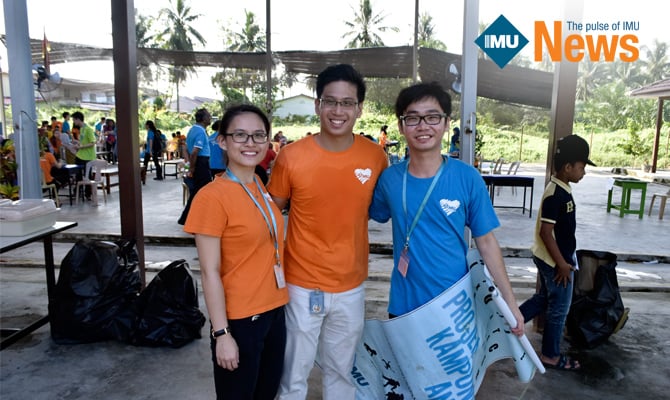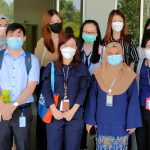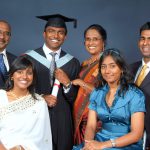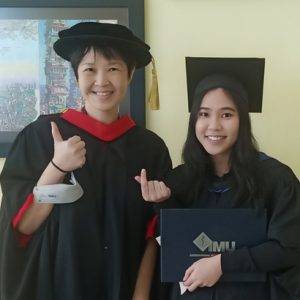Having spent a lot of time with cousins who are doctors coupled with a desire to help the needy and aid the poor fueled Ho Yan Le’s dream of studying medicine and becoming a doctor. His parents have motivated and supported him in his pursuit of this dream. All the hard work was worth the effort when Yan Le graduated with his MBBS (IMU) in June 2016. 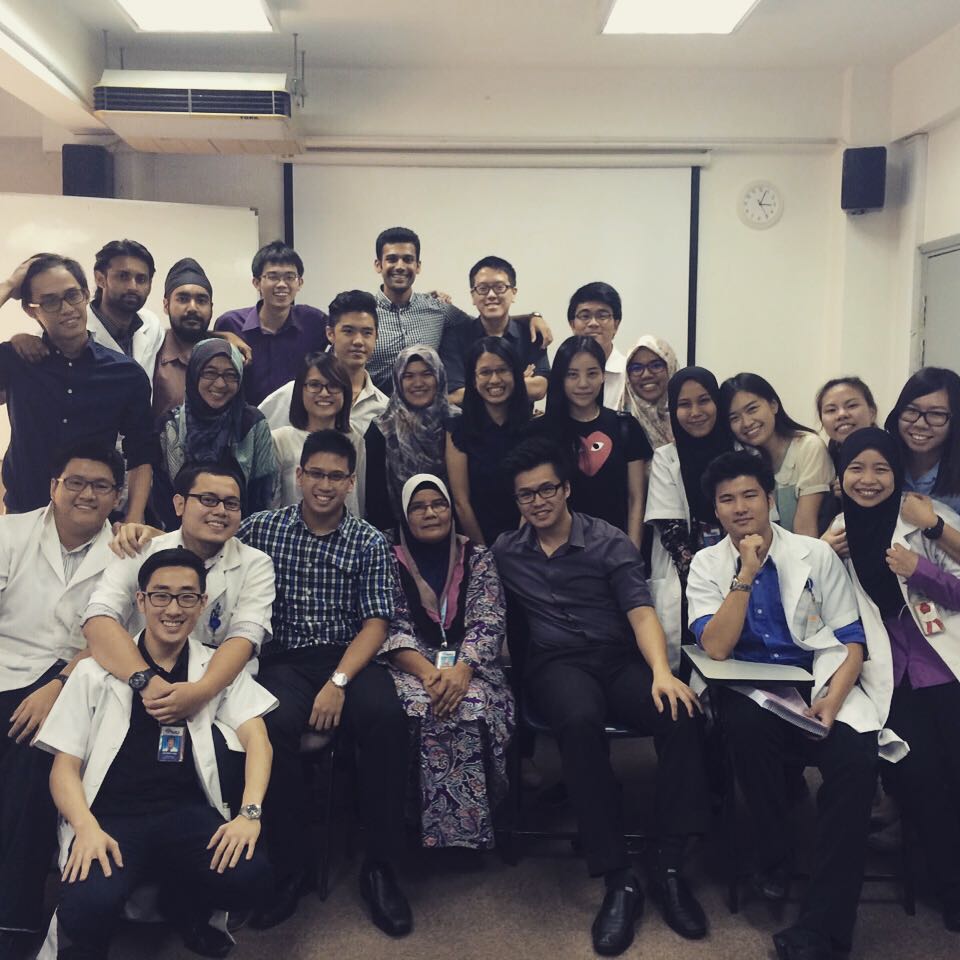 His outstanding academic performance at IMU gained him several awards, including Prof Guan Chong Book Prize in Surgery for high achievement in surgery, the prestigious Dr Saidi Hashim Memorial Gold Medal for the highest achievement, Distinction Award in his final examinations, the Maxis Scholarship for Excellence Award (MSEA) and first prize in the 2011 AMSA Medical Challenge. He was also one of the winners of the medical selective and electives programme of his cohort. Yan Le has always managed to balance his academic excellence withan exemplary record of leadership and service on and off campus. Apart from that, Yan Le is dedicated and passionate about serving the community, participating in various health screening programmes. We met up with Yan Le for an interview. Why did you decide to study medicine at IMU? IMU is an institution of higher learning that offers the best qualities of education and medical training for future healthcare practitioners. I believe in self-directed and life-long learning, which is highly emphasised and deeply encompassed in IMU’s student-centered curriculum. Besides that, the university provides vast teaching resources as well as comprises of exceptionally skilled and learned professors, both in the Bukit Jalil campus and the Clinical Schools in Seremban and Batu Pahat. The curriculum has trained me to become an independent learner, and prepared me to face the challenges ahead when I step into the medical profession.
His outstanding academic performance at IMU gained him several awards, including Prof Guan Chong Book Prize in Surgery for high achievement in surgery, the prestigious Dr Saidi Hashim Memorial Gold Medal for the highest achievement, Distinction Award in his final examinations, the Maxis Scholarship for Excellence Award (MSEA) and first prize in the 2011 AMSA Medical Challenge. He was also one of the winners of the medical selective and electives programme of his cohort. Yan Le has always managed to balance his academic excellence withan exemplary record of leadership and service on and off campus. Apart from that, Yan Le is dedicated and passionate about serving the community, participating in various health screening programmes. We met up with Yan Le for an interview. Why did you decide to study medicine at IMU? IMU is an institution of higher learning that offers the best qualities of education and medical training for future healthcare practitioners. I believe in self-directed and life-long learning, which is highly emphasised and deeply encompassed in IMU’s student-centered curriculum. Besides that, the university provides vast teaching resources as well as comprises of exceptionally skilled and learned professors, both in the Bukit Jalil campus and the Clinical Schools in Seremban and Batu Pahat. The curriculum has trained me to become an independent learner, and prepared me to face the challenges ahead when I step into the medical profession. 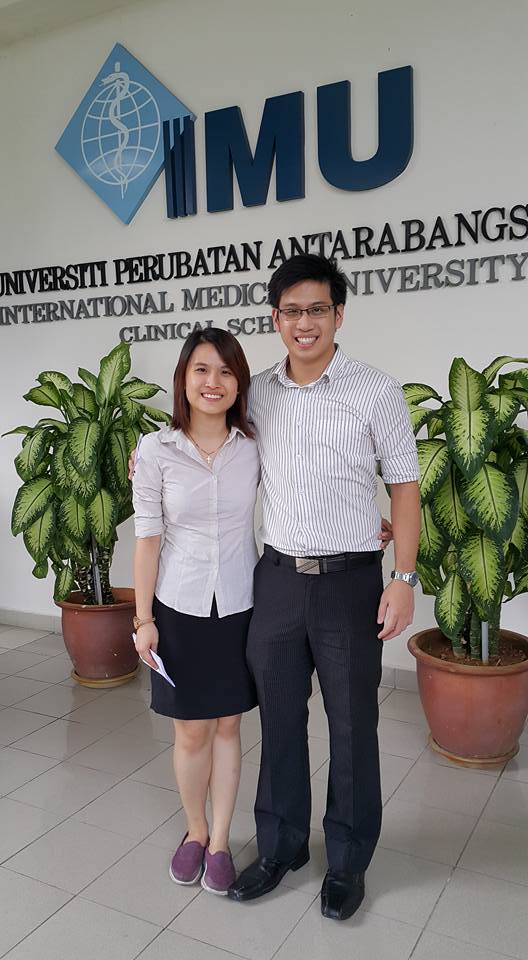 How did you feel when you knew that you are the gold medallist/top of the class? I was informed by Dato’ Kew, the Dean of Medical School that I am the recipient of this prestigious award. I felt very honoured and grateful to receive this special news. I was extremely excited and elated as I felt the efforts put into my studies have paid off. It certainly has given me a lot of encouragement to search for better achievement and excellence in my future career path. I also informed my parents regarding this and expressed my gratitude to them. Of course, I would like to take this opportunity to express my sincere gratitude and thankfulness to my mentors, professors and fellow friends for their guidance and support throughout the years. What is your motivation to achieve success in your studies consistently? I always have clear objectives and goals in mind, be it studying or doing clinical work, balancing both work and play. Determination and self-discipline is the key to achieve my concrete goals. Drawing out plans and managing my time certainly help to achieve them. Having a role model would be great as a motivation but ultimately, having faith in myself is the most important virtue as in the end I am the only one who knows what is best for myself and what I really want to achieve. I have always reminded myself to be self-confident and do not ever underestimate my own potential ability; to stay positive and calm during hard times, and always remember the passion and enthusiasm I have at the beginning of the journey. At the same time, being humble and modest is crucial, to be able to switch role between a leader and a team-player when necessary. Be open-minded to accept criticism and advice, only then one can improve himself to be better. Lastly, I believe in continuous work and perseverance in achieving my dreams.
How did you feel when you knew that you are the gold medallist/top of the class? I was informed by Dato’ Kew, the Dean of Medical School that I am the recipient of this prestigious award. I felt very honoured and grateful to receive this special news. I was extremely excited and elated as I felt the efforts put into my studies have paid off. It certainly has given me a lot of encouragement to search for better achievement and excellence in my future career path. I also informed my parents regarding this and expressed my gratitude to them. Of course, I would like to take this opportunity to express my sincere gratitude and thankfulness to my mentors, professors and fellow friends for their guidance and support throughout the years. What is your motivation to achieve success in your studies consistently? I always have clear objectives and goals in mind, be it studying or doing clinical work, balancing both work and play. Determination and self-discipline is the key to achieve my concrete goals. Drawing out plans and managing my time certainly help to achieve them. Having a role model would be great as a motivation but ultimately, having faith in myself is the most important virtue as in the end I am the only one who knows what is best for myself and what I really want to achieve. I have always reminded myself to be self-confident and do not ever underestimate my own potential ability; to stay positive and calm during hard times, and always remember the passion and enthusiasm I have at the beginning of the journey. At the same time, being humble and modest is crucial, to be able to switch role between a leader and a team-player when necessary. Be open-minded to accept criticism and advice, only then one can improve himself to be better. Lastly, I believe in continuous work and perseverance in achieving my dreams.
Pele, a famous footballer once said, “Success is no accident. It is hard work, perseverance, learning, studying, sacrifice and most of all, love of what you are doing or learning to do”.
How do you manage to have a balance in your studies and other activities? Perseverance, time management and self-discipline are the key in balancing between the studies and other activities. Sometimes I would draw out a schedule and make plans for the events and activities that I intend to do. Setting achievable goals and aims every day is necessary to achieve a well-balanced work-play schedule. Of course, the most crucial part is to be able to prioritise the tasks and activities accordingly, and be flexible in managing time, studies and other tasks. 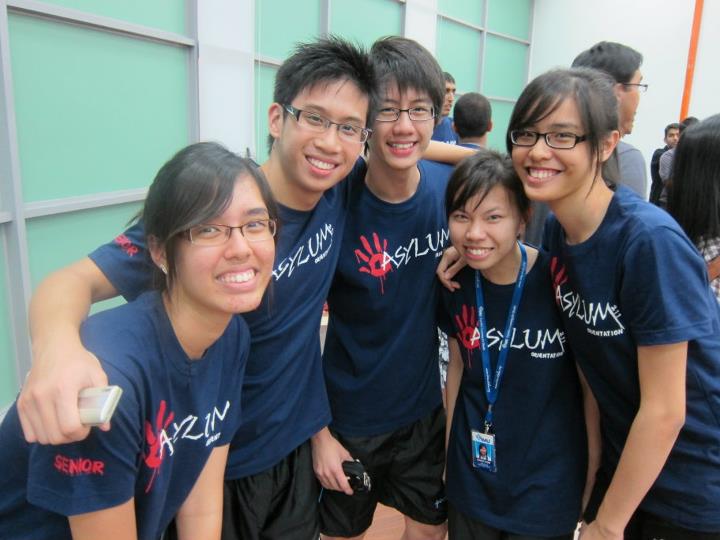
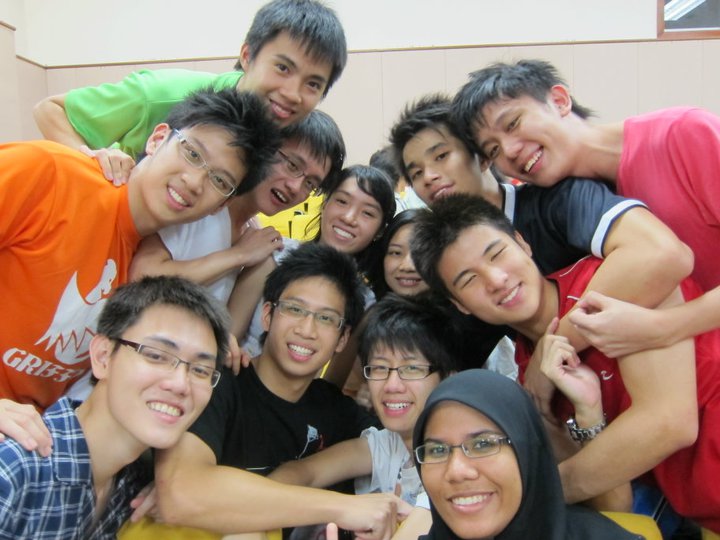 Describe your most memorable time in IMU Countless of memorable moments during my time in IMU. Among which was the presentation for my selective and elective programme which I underwent in Semester 8. I travelled to Taiwan for my selective, in which I joined the Department of Cardiovascular Surgery and Department of Neurosurgery, before I embarked on my 1-month backpack journey in Eastern Europe, crossing 4 countries and more than 13 cities. Thanks to my mentor, I was lucky enough to be selected as one of the presenters for this programme, as to provide the juniors a rough idea on how to conduct this programme. To capture their attention and convey my idea more effectively, I made a video for my backpack trip to Europe, and a slide presentation for my posting in Taiwan. Although it was just a short 20 minutes presentation, I enjoyed every bit of it, sharing my experiences and opinions regarding my trips and the programme, advising my juniors as to utilise this opportunity as much as possible in order to enrich their students’ lives. The presentation went well with lots of jokes and laughter. In the end, with the support from my mentor, the judges and friends, I was awarded the top 5 presenter of the programme.
Describe your most memorable time in IMU Countless of memorable moments during my time in IMU. Among which was the presentation for my selective and elective programme which I underwent in Semester 8. I travelled to Taiwan for my selective, in which I joined the Department of Cardiovascular Surgery and Department of Neurosurgery, before I embarked on my 1-month backpack journey in Eastern Europe, crossing 4 countries and more than 13 cities. Thanks to my mentor, I was lucky enough to be selected as one of the presenters for this programme, as to provide the juniors a rough idea on how to conduct this programme. To capture their attention and convey my idea more effectively, I made a video for my backpack trip to Europe, and a slide presentation for my posting in Taiwan. Although it was just a short 20 minutes presentation, I enjoyed every bit of it, sharing my experiences and opinions regarding my trips and the programme, advising my juniors as to utilise this opportunity as much as possible in order to enrich their students’ lives. The presentation went well with lots of jokes and laughter. In the end, with the support from my mentor, the judges and friends, I was awarded the top 5 presenter of the programme. 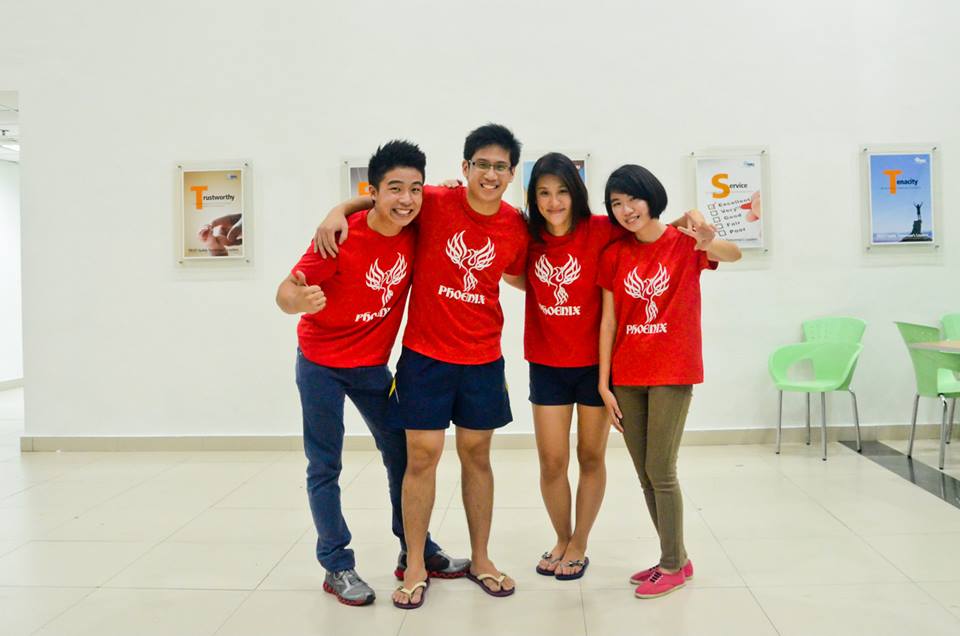 Describe your experience during your Semester 10
Describe your experience during your Semester 10
I spent the last 6 months of my clinical years in Batu Pahat, a small town in Johor. It was indeed one of the most memorable experiences in the medical school. Besides having a group of friendly and helpful clinical school staffs, the faculty members were also supportive and responsible, not forgetting the approachable hospital staff.
As a shadowing house officer, the faculty staffs treated us as doctors but at the same time, guiding and tutoring us throughout the last 6-month journey, with full passion and enthusiasm, ensuring whoever comes out from the school is truly competent and professional. Being a shadowing house officer in a district hospital, I had performed a lot of hands-on procedures under proper guidance, involving myself in the management of the patients. Of course, these amazing experiences were complemented by the leisure times spent with friends on the football field, the basketball court and road trips. Describe your experience in the more notable extra-curricular activities in IMU 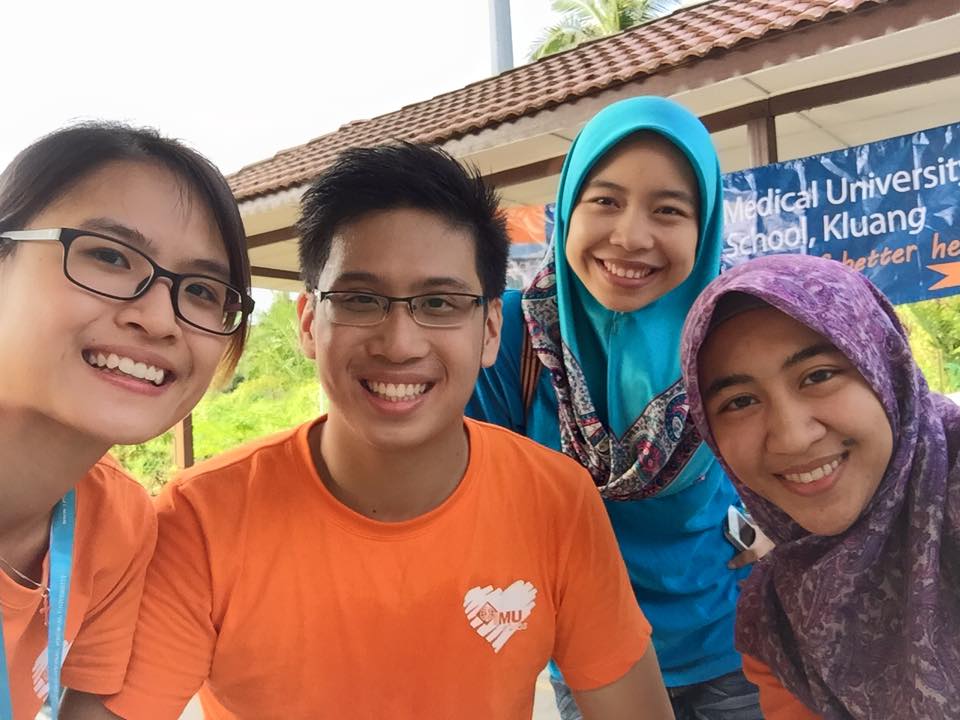 I joined and participated in various extra-curricular activities in IMU, from being the Secretary of Badminton Club, the President of First Aid Club, to the Student Ambassador, Student Representative Council in Clinical School and Student Leader for the International Medical Education Conference (IMEC). However, one of the most memorable experiences was the IMU Cares Project (ICP) in Kampung Lapis during my Semester 10 in Batu Pahat. I was the student leader of this project, and being the project leader, I was involved in all the meetings and planning with the professors, the committee of the kampong, the headmaster of the school and of course, the villagers. Planning ranges from giving out flyers and putting up posters, to liaise with school and ketua kampong as well as preparing meals. It was definitely not an easy task, considering the need to rush my assignments (portfolios) and handle exams at the same time, but thanks to the committed and supportive Professors and Sisters (nurses), as well as my dedicated committee members, the event was a success with almost full attendance from the villagers. I have learnt a great deal of experiences from the event. In fact, I believe most of us did. Describe your experience in serving the community
I joined and participated in various extra-curricular activities in IMU, from being the Secretary of Badminton Club, the President of First Aid Club, to the Student Ambassador, Student Representative Council in Clinical School and Student Leader for the International Medical Education Conference (IMEC). However, one of the most memorable experiences was the IMU Cares Project (ICP) in Kampung Lapis during my Semester 10 in Batu Pahat. I was the student leader of this project, and being the project leader, I was involved in all the meetings and planning with the professors, the committee of the kampong, the headmaster of the school and of course, the villagers. Planning ranges from giving out flyers and putting up posters, to liaise with school and ketua kampong as well as preparing meals. It was definitely not an easy task, considering the need to rush my assignments (portfolios) and handle exams at the same time, but thanks to the committed and supportive Professors and Sisters (nurses), as well as my dedicated committee members, the event was a success with almost full attendance from the villagers. I have learnt a great deal of experiences from the event. In fact, I believe most of us did. Describe your experience in serving the community 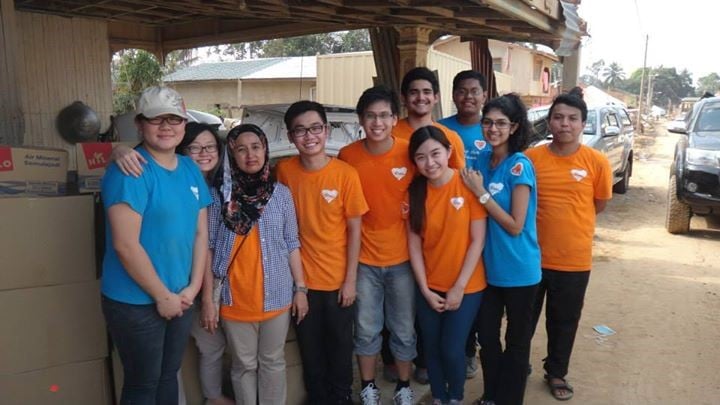 I always believed in community service and helping others, and that was part of the reason why I have chosen this path of life – to serve the community. Since young, I had been to various trips and visits to centres for underprivileged children and old folks homes as a boy scout, and these services continued when I joined the UNICEF society in my college, where we collaborated with other universities. As a medical student, I engaged in some charity organisations for free clinics, and participated in the MAPCU organ donation campaign as a committee member. During my Paediatric posting, I had the opportunity to visit a centre for children with autism and special needs in Port Dickson with my lecturer. Furthermore, with a group of college friends, we helped out and assisted the staff in the School for Refugees in Kepong and paying visit to orphanages’ homes in Cheras and Ampang during Christmas. Being the president of First Aid Club and trainer of Basic Life Support, I have provided basic and advanced first aid training as well as CPR training to the public, emphasising the importance of these timely life-saving procedures. Lastly, I have participated in the Kuala Krai Flood Relief Programme when the major flood occurred last year (2015), apart from organising numerous kampong angkat projects as well as being the project leader for ICP Kampung Lapis. Your future plans
I always believed in community service and helping others, and that was part of the reason why I have chosen this path of life – to serve the community. Since young, I had been to various trips and visits to centres for underprivileged children and old folks homes as a boy scout, and these services continued when I joined the UNICEF society in my college, where we collaborated with other universities. As a medical student, I engaged in some charity organisations for free clinics, and participated in the MAPCU organ donation campaign as a committee member. During my Paediatric posting, I had the opportunity to visit a centre for children with autism and special needs in Port Dickson with my lecturer. Furthermore, with a group of college friends, we helped out and assisted the staff in the School for Refugees in Kepong and paying visit to orphanages’ homes in Cheras and Ampang during Christmas. Being the president of First Aid Club and trainer of Basic Life Support, I have provided basic and advanced first aid training as well as CPR training to the public, emphasising the importance of these timely life-saving procedures. Lastly, I have participated in the Kuala Krai Flood Relief Programme when the major flood occurred last year (2015), apart from organising numerous kampong angkat projects as well as being the project leader for ICP Kampung Lapis. Your future plans 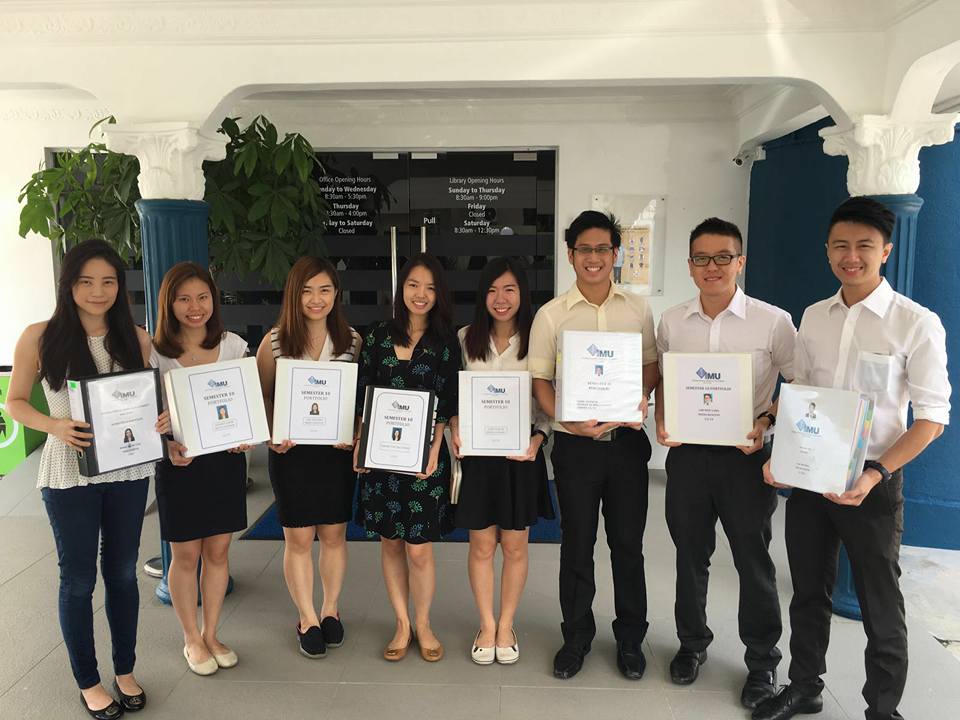 Looking at myself upon completing 2 years of housemanship, I would like to engage myself in the specialty of surgery as I have much interest and passion in this field. I will consider taking the exam during my houseman years if I have the opportunity, and I will definitely prepare for it. Of course, there are lots of uncertainties out there in this career and thus, it is wiser to keep my options open. However, I will try my very best, to pursue my dream and achieve my goals. After all it was the ever-challenging nature of medicine and surgery that made me embark on my journey in medical school. One thing for sure, it is going to be a lifelong learning, just as how Hippocrates described medicine “the life so short, the craft so long to learn”. Your advice to those who are aspiring to be doctors Well, it is very noble of you to be ready to take up this challenging yet exciting profession. However, be sure that it is the sheer passion, interest and desire to help the needy and the sick to end their suffering, if not, to relieve their pain that motivates you to study medicine, not anything else, as these are strong motivations to drive you through the hardship that you will face. Talk to someone in the medical field or apply for an attachment in a hospital, as this may help you to get a clearer and more realistic idea of what is being like to be a doctor.
Looking at myself upon completing 2 years of housemanship, I would like to engage myself in the specialty of surgery as I have much interest and passion in this field. I will consider taking the exam during my houseman years if I have the opportunity, and I will definitely prepare for it. Of course, there are lots of uncertainties out there in this career and thus, it is wiser to keep my options open. However, I will try my very best, to pursue my dream and achieve my goals. After all it was the ever-challenging nature of medicine and surgery that made me embark on my journey in medical school. One thing for sure, it is going to be a lifelong learning, just as how Hippocrates described medicine “the life so short, the craft so long to learn”. Your advice to those who are aspiring to be doctors Well, it is very noble of you to be ready to take up this challenging yet exciting profession. However, be sure that it is the sheer passion, interest and desire to help the needy and the sick to end their suffering, if not, to relieve their pain that motivates you to study medicine, not anything else, as these are strong motivations to drive you through the hardship that you will face. Talk to someone in the medical field or apply for an attachment in a hospital, as this may help you to get a clearer and more realistic idea of what is being like to be a doctor.
And of course, being empathic and sympathetic to patients are the two most important attitudes as you cannot be a good doctor without compassion, and always be humble and willing to take criticism. Just remember, no doctor knows everything, there’s a reason why it’s called “practicing” medicine. Lastly, of course, to be a good and professional doctor, you got to have the right attitudes, a kind heart, a strong passion and a love to medicine.
Just like what Hippocrates once said, “Wherever the art of Medicine is loved, there is also a love of Humanity”.




